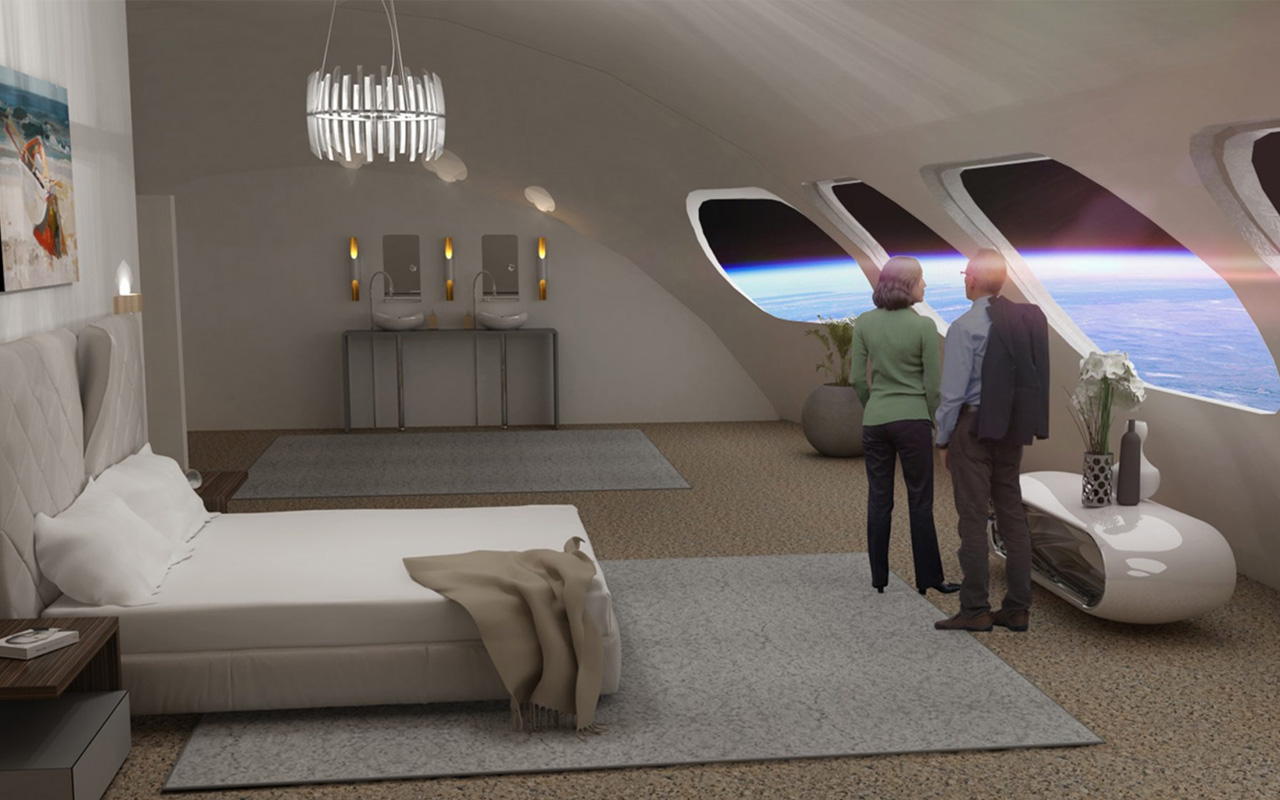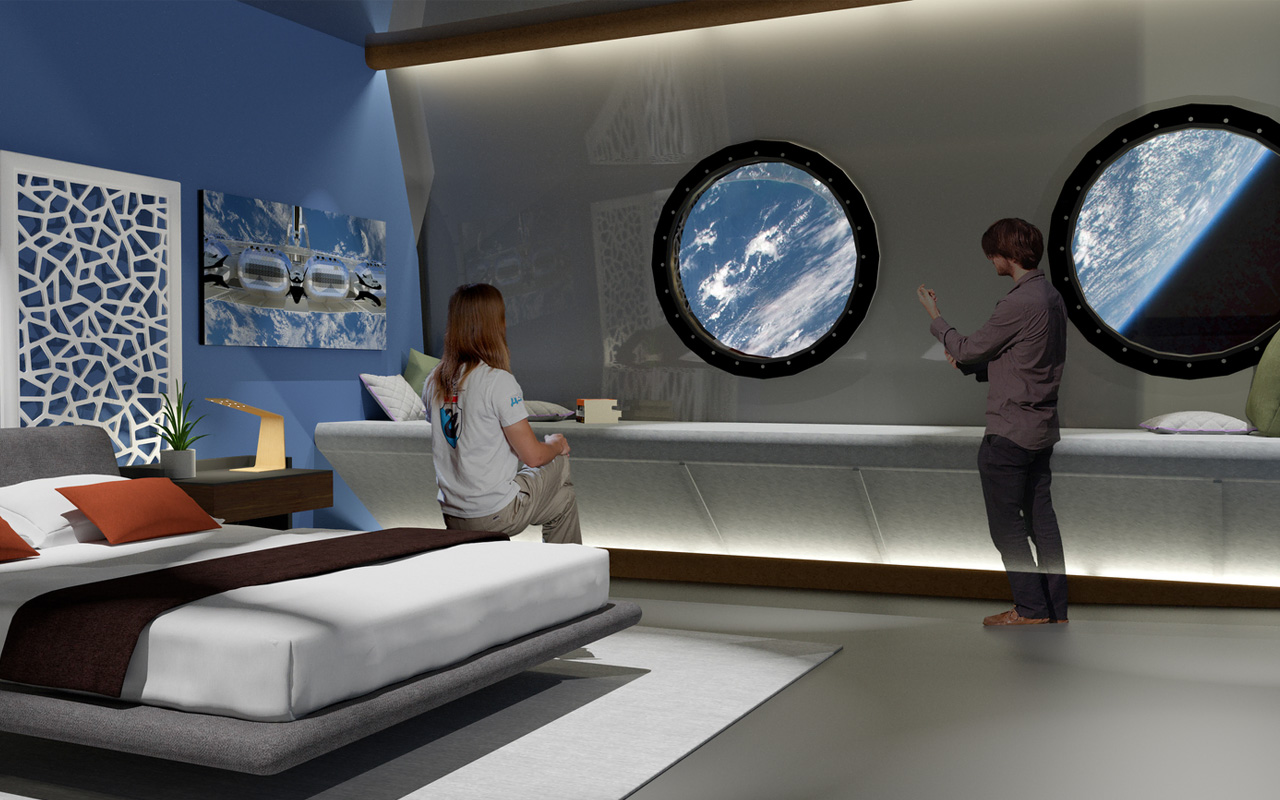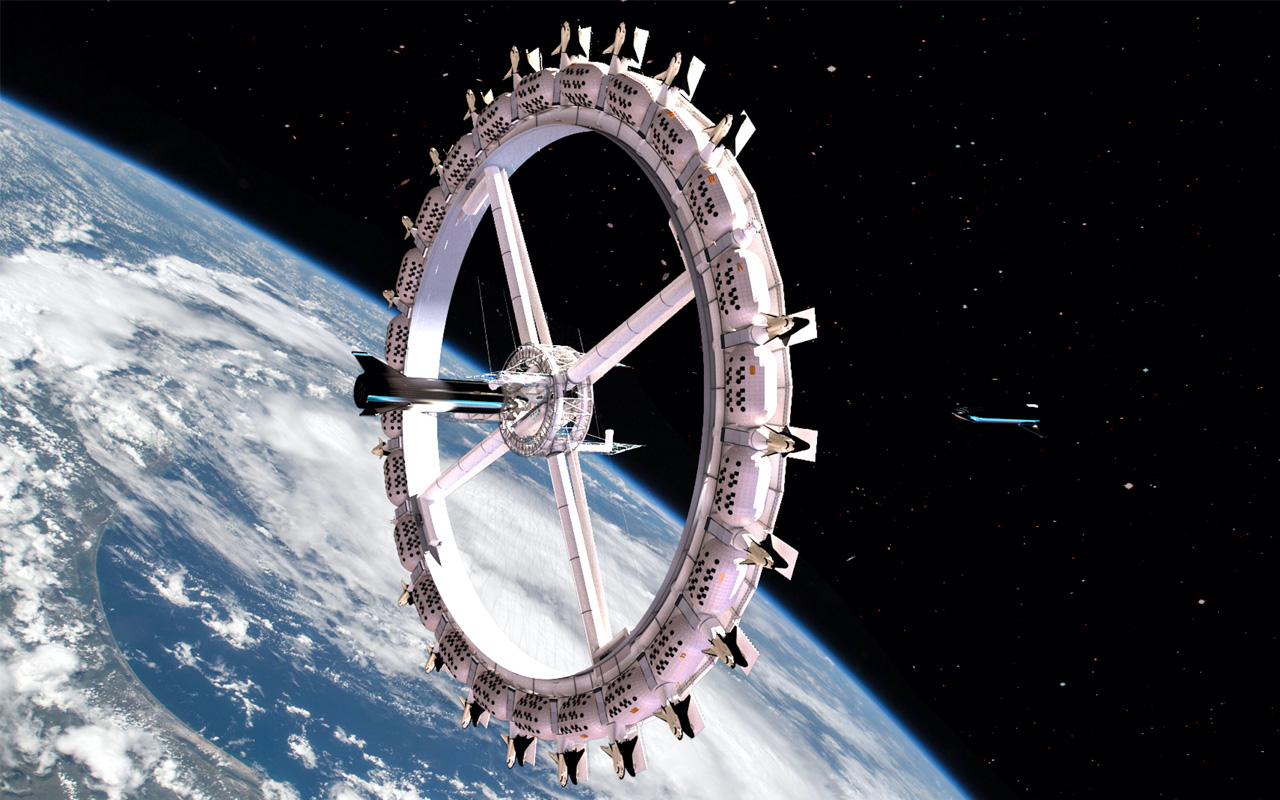Conceived in 2019, the idea of building a space hotel is soon to materialize. Orbital Assembly Corporation has announced that it will begin construction of the world’s first space hotel in 2025, which will be completed and fully operational by 2027.
Named the Voyager Station, the space hotel will be built in low Earth orbit, complete with luxury accommodations, bars, restaurants, and even a gym as per the ambitious plans for the project. Moreover, the hotel will be designed to generate different levels of artificial gravity depending on the increasing and decreasing rotation rate of the orbiting hotel.
The orbiting hotel
The basic structure for this orbiting hotel will comprise two concentric rings, with the inner ring serving as a docking station, while the outer ring will provide mounting base for lodging modules, solar panels, radiators, and a rail transport system. Voyager will have 24 habitation modules – 65 feet long and 40 feet wide each – and will have functional toilets and showers etc.

Pods attached to the outer ring will serve several functions, including providing research and training centers for NASA and ESA, while others will proffer accommodation for travelers or be used for other hotel facilities. According to the available information, individual pods will adhere to the rotating outer wheel with tubes linking the various areas forming an X, similar to the wheel’s spokes.
Life on the Voyager

The Voyager will combine technologies of space and earthly comforts to create an out-of-the-world experience, literally. It won’t merely be providing lodging in the outer space but will also have plenty of luxurious amenities onboard including themed restaurants, a health spa, a cinema, libraries, and a capacity to house 400 people. Necessary provisions for crew quarters, air, water and power will also take up a part of the facility.
The company hopes to sell portions of the hotel to permanent stakeholders, including government agencies seeking to occupy some space as a training center or landlords wanting to create a villa on the Voyager. Apparently, the Voyager will rotate around the globe every 90 minutes, and each rotation will produce artificial gravity similar to that on the moon. Nothing regarding the construction costs or stay charges has yet been revealed.



